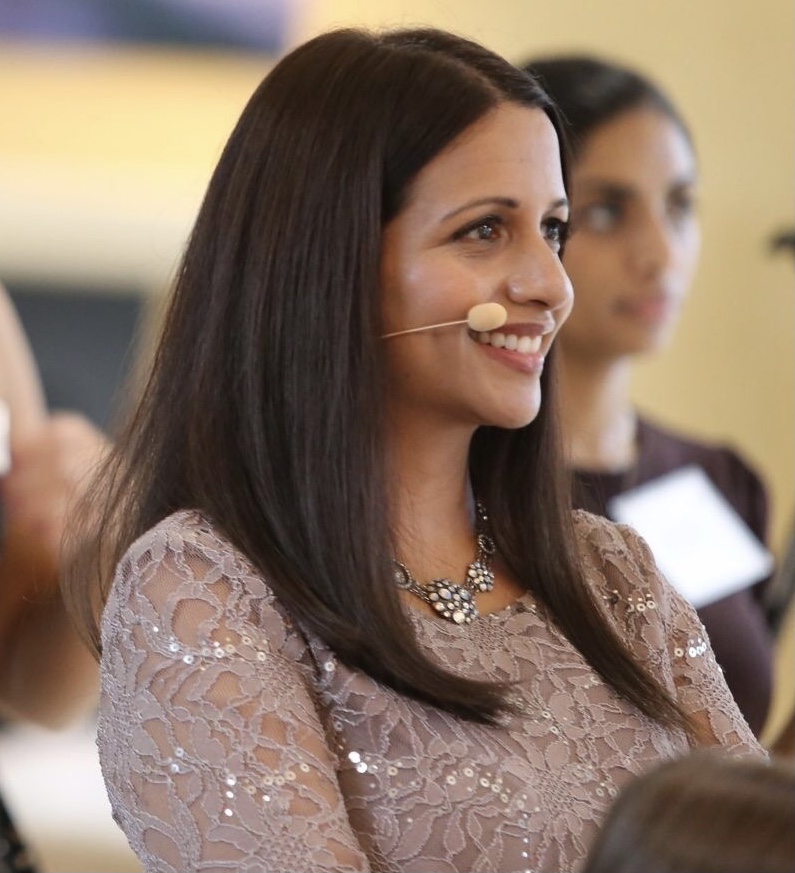By Rachana Bhide
Back in the early 2000s, I was living in DC and was home one unremarkable evening, when I received a terribly alarming voice message. It was from a guy who I was close to and had known for years; he was now back in town himself after graduating. We had caught up in the previous days, but I was wholly unprepared for the message I picked up.
“Rach,” it said. The voice on the message was distraught, barely audible. “Rach, I’m having a really difficult time here again. I don’t think it’s getting any better. I really think — like, tonight — I think I’m going to kill myself.”
I don’t remember my immediate reaction, except frantically locating his number on my cell phone and hitting send. “Come over,” I said — I know I said this, and the next words: “We’ll get you better.” I honestly don’t even remember if I talked to him or if I left it as a voice message, but within 5 minutes he was already at my door.
When he arrived he didn’t appear broken; he had clearly been crying but I remember thinking he looked quite in control. We stood two steps from my front door and talked in my foyer– either out of situational urgency, or because we tried to attempt a casual, breezy conversation, similar to how we always were with each other. But it certainly wasn’t breezy; he talked about the things that had been happening in his life, how hard it was for him to be back in the same difficult environment, and how scared he was to face what was to come.
Two and a half hours later, we hadn’t left the foyer. We’d both migrated directly onto the cold carpet, sitting across from each other with more eye contact than I’d ever made with him, talking through his pain, our tones beginning to alternate between serious and relaxed.
When he seemed to be OK, we started bantering a bit, and I made a gentle but perfectly timed joke that had him laughing so hard I was actually kind of proud of myself for making him “better” again. He still remains a dear friend to this day.
Yet he and I never spoke of the incident again.
I would like to say that event changed me and my views on male mental health, but I was too numb at that point to understand (or accept) how someone — a guy — with whom I was so close might be fragile. It also felt incredibly awkward to suggest he may need any kind of emotional support. “Talk to me if you’re ever down, I’ll make you laugh” was kind of how I had dealt with all the men in my life.
Getting “Woke” To the Topic of Men and Mental Health
It wasn’t until 15 years later, when I began my master’s degree in psychology, that I remembered the incident. I only recalled it after I was on a date, and my date told me a guy who he had grown up with committed suicide. I woke up at 2am that night, remembering vividly the entire episode: the foyer, the long talk, and the raw, broken voice message.
As part of my my master’s research I was speaking to a lot of men about topics like leadership and the workplace. And as I was doing so, I was naturally beginning to feel these men’s — often very high — levels of empathy. The more I spent time with my two best buddies in grad school, the more I realized how wonderfully, traditionally “masculine” and simultaneously deeply emotional they were. So I wanted to explore how men tapping into their emotions could have a positive effect on the workplace and on themselves.
Men Supporting Women… and Women Supporting Men
One key piece of my research evolved specifically to the role of gender partnerships: how men use their natural empathy to positively champion and support women in their lives. The Corner of the Court is a project and social platform I created that offers a simple, visible way for women to share a story about a guy who has inspired and supported her. The message is to promote and further encourage such behaviors of our male allies by saying: “Men… your mentorship to us makes an impact.”
The woman is the hero of the story she shares on the site. Yet it says volumes, that she is making a conscious decision to publicly share how important her male champion is.
This is an added, deeper impact that the project is making… it offers both a present and powerful voice from women: When a man matters to us, we take the time to let him know.
I strongly believe that what our men need to hear, and feel from the world, is love. For me, outside of romantic relationships, I was far remiss in offering any such words to the other men in my life. The stories we receive in The Corner of the Court cover diverse relationships women have with their mentors, coaches, brothers, fathers, bosses… Yet, read any story and you’ll find that each one is unquestionably filled with love: from the supportive actions the man has offered to the woman, and in turn, how the woman talks about his impact so publicly.
Why We Do What We Do: My Confession
Here’s where I make my confession: The Corner of the Court is the most important thing I’m involved with now, and it is absolutely because of the positive message it spreads for male allies and champions who support women (the powerful tennis metaphor of him being firmly “in her court”). And that will continue.
But it’s no secret, there’s a reason we researchers are drawn to certain topics — they are those topics with which we have some “unfinished business” (whether consciously or not), or poignant experiences through which we have lived, survived, and are especially poised to navigate.
I was in such disbelief the evening I got that call, it took me 15 years to even begin to make sense of it. I know this project won’t prevent the circumstances of what led to that night in this man’s life, nor can it change the rigid environmental pressures under which I believe men must mask emotional pain or their need for mental health support.
But I do know that my work provides me, and hopefully our readers, a profound and active reminder that we women should let our guys know, directly and often, how much they matter to us.
To those who follow, who share, who submit stories on behalf of our project, thank you. Thank you for supporting our guys, who invest so much of themselves in supporting us!

